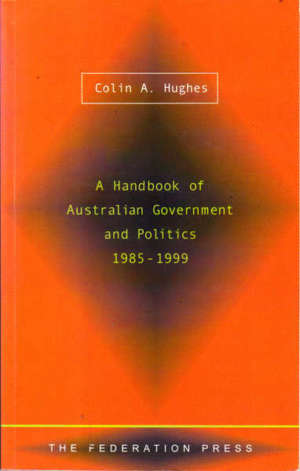Product Description
On many criteria, Australia has been a pioneering democracy. As one of the oldest continuing democracies, however, a health check has long been overdue. Since 2002 the Democratic Audit of Australia, a major democracy assessment project, has been applying an internationally tested set of indicators to Australian political institutions and practices.
The indicators derive from four basic principles—political equality, popular control of government, civil liberties and human rights and the quality of public deliberation. Comparative data are taken from Australia’s nine jurisdictions, as well as from three comparator democracies, Canada, New Zealand and the United Kingdom, to identify strengths, weaknesses and opportunities for reform.
Some of the findings are disturbing. For example, Australia has fallen well behind in the regulation of private money in elections and in controlling the use of government or parliamentary resources for partisan benefit. Transparency and accountability have suffered from relatively weak FOI regimes and from executive dominance of parliaments.
For those studying democracy or wanting to reform Australian politics, The State of Democracy provides a wealth of evidence in a well-illustrated and highly accessible format. Internationally, it is an important contribution to the democracy assessment literature and pushes into new areas such as the intergovernmental decision-making of federalism.





